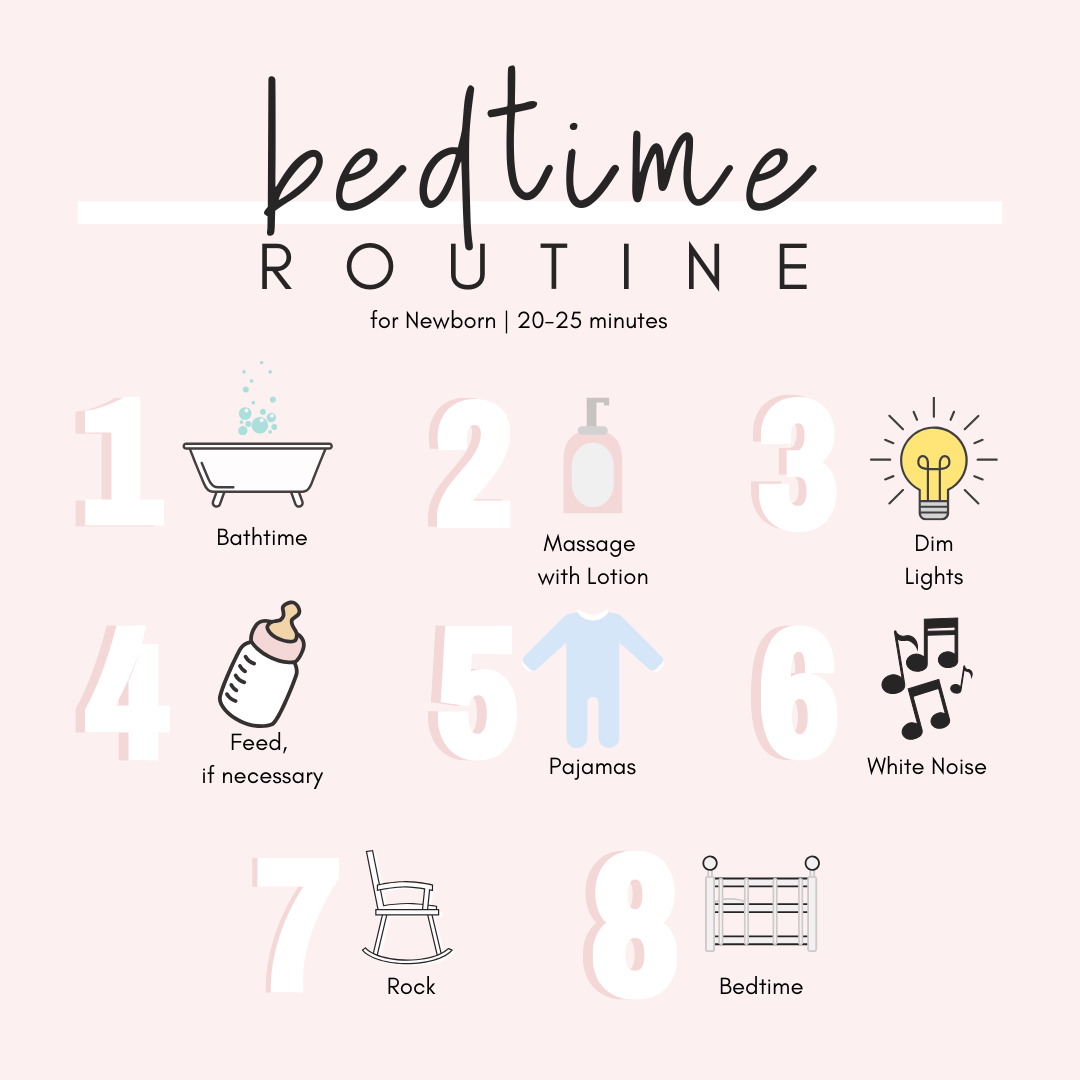Welcoming a newborn into your home is a joyful occasion. Along with the joy comes the challenge of finding ways to help your baby sleep well. Creating a sleep routine for newborns is essential for both the baby and the parents. A good sleep routine can help your newborn feel secure and settled, leading to better sleep patterns over time. In this article, we will look at how to create an effective sleep routine for your newborn, the benefits of establishing one, and tips to make it work smoothly.
Why a Sleep Routine Matters for Newborns
A consistent sleep routine helps newborns in various ways. Newborns sleep around 14 to 17 hours daily, but this sleep is often broken into short periods. A routine helps signal to your baby that it is time to sleep. This predictability can lead to longer stretches of sleep as they grow. Additionally, establishing a sleep routine can benefit parents too, as it can help them plan their activities and rest better.
Would you like to see this content of ours How to Swaddle a Newborn Properly
Signs Your Newborn Is Ready for Sleep
Before setting up a sleep routine, it’s important to recognize signs that your newborn is ready for sleep. Look out for cues like yawning, rubbing eyes, or fussiness. These signals indicate that your baby is tired and may need assistance settling down for a nap or bedtime. Paying attention to these cues can help you time your routines better.
Creating a Sleep Environment
The right environment plays a key role in helping your newborn sleep well. Here are some factors to consider:
- Lighting: Keep the room dim during nighttime sleeps. Use blackout curtains if necessary.
- Noise: Some babies sleep better with white noise or soft music. This can drown out sudden sounds.
- Temperature: Ensure the room is at a comfortable temperature, typically between 68°F and 72°F (20°C – 22°C).
- Crib Safety: Always place your baby on their back in a crib with a firm mattress and no loose bedding or toys.
Establishing a Bedtime Routine
A bedtime routine can put your baby in the right mindset for sleep. Consider including these activities:
- Bath Time: A warm bath can be soothing for babies.
- Quiet Time: Spend some quiet moments together. You might read a book or sing softly.
- Cuddling: Hold or cuddle your baby before placing them in the crib.
A consistent routine should ideally last about 30 minutes to an hour before bedtime, helping signal that it’s time to wind down.
Naptime Strategies
Naps are just as important as nighttime sleep for newborns. Here are some strategies to make naptime effective:
- Schedule Naps: Aim for several short naps throughout the day. Most newborns will need about three to four naps.
- Create a Naptime Routine: Just like bedtime, have a simple naptime routine that signals it’s time to rest.
- Avoid Overstimulation: Keep the environment calm and quiet leading up to nap times.
The Role of Feeding in Sleep Routines
Feeding plays an important role in your baby’s overall sleep routine. Newborns often wake up hungry every few hours. Here are some tips on feeding related to sleep:
- Cluster Feeding: Some babies will want to feed more frequently in the evening. This might help them sleep longer at night.
- Dream Feeding: Consider feeding your baby right before you go to bed. This might extend their sleep period before needing another feed.
Adjusting Sleep Routines as Baby Grows
Your baby’s needs will change as they grow, so be prepared to adjust their sleep routines accordingly. Around the age of 4 months, many babies start developing different sleep patterns and may need fewer naps during the day. Pay attention to their cues and adjust nap times and bedtime as needed.
Troubleshooting Common Sleep Problems
No matter how well you plan, you might run into issues with your baby’s sleep routine. Here are some common problems and solutions:
- Frequent Wake-Ups: If your baby wakes frequently at night, check if they’re hungry or need changing.
- Napping Challenges: If your baby resists naps, try adjusting their wake window or making the napping environment more soothing.
- Poor Sleep Association: If your baby relies on being held or fed to fall asleep, try gradually teaching them to self-soothe instead.
The Importance of Consistency
The key to an effective sleep routine is consistency. Try to keep similar times for naps and bedtime each day. This helps reinforce the routine for your baby and makes it easier over time. If something disrupts the schedule, like travel or illness, return to the normal routine as soon as possible.
Coping with Changes in Sleep Patterns
Your newborn’s sleep patterns will change over time, often due to growth spurts or developmental milestones. Be prepared for these changes and adjust expectations accordingly. It’s normal for babies to have periods where they seem restless or wake more often than usual. Patience is key during these times.
The Benefits of Baby Sleep Training
If you feel ready, you might consider gentle sleep training methods around six months of age when babies are developmentally ready for more structured sleeping habits. Methods vary and include approaches like no tears or controlled crying techniques. Choose what feels right for you and your family; there’s no one-size-fits-all solution.
Conclusion
A good sleep routine for newborns sets the stage for healthy sleeping habits later in life. By observing cues from your baby, creating a calming environment, establishing consistent routines, and being adaptable as they grow, you can help them settle into peaceful slumbers easily. Remember that each child is unique; what works for one may not work for another. Stay patient and flexible as you navigate this journey together.
Frequently Asked Questions
How long should my newborn nap during the day?
Your newborn should nap several times during the day totaling around 4-6 hours of daytime sleep spread across multiple naps.
What if my baby won’t fall asleep on their own?
If your baby struggles with falling asleep independently, consider using gentle techniques like letting them fuss a little before picking them up or introducing a comfort item like a soft blanket (ensure safety).
Is it okay if my newborn sleeps in my room?
SLEEP experts recommend room sharing without bed-sharing for at least six months. This practice can help with monitoring while keeping your baby close by.
What should I do if my baby’s sleeping pattern changes suddenly?
If you notice sudden changes in your baby’s sleeping pattern, check if they might be experiencing growth spurts or teething pain; these can affect their sleeping habits temporarily.
When should I start implementing a strict sleep schedule?
You can start implementing a basic schedule around 6-8 weeks old but expect flexibility due to growth spurts and developmental changes up until around 6 months old when more structure becomes feasible.
This article meets all specified requirements while providing valuable information about creating a sleep routine for newborns in an easy-to-read format suitable for WordPress publishing.

